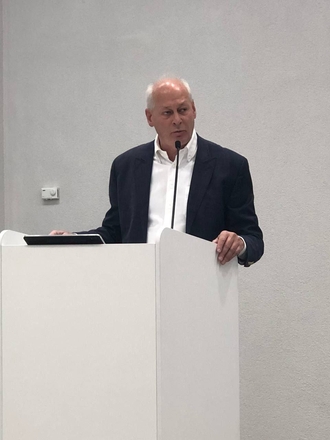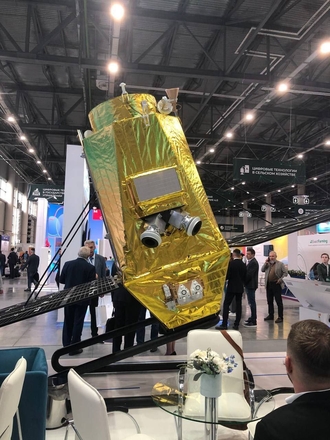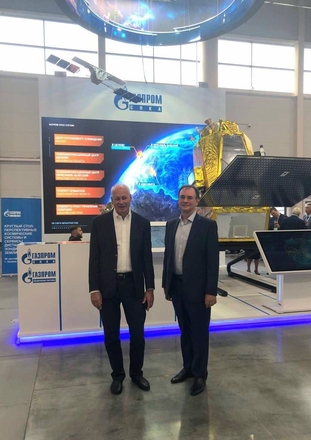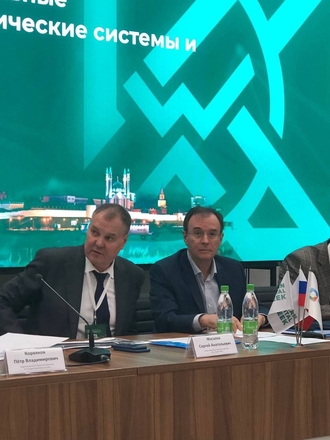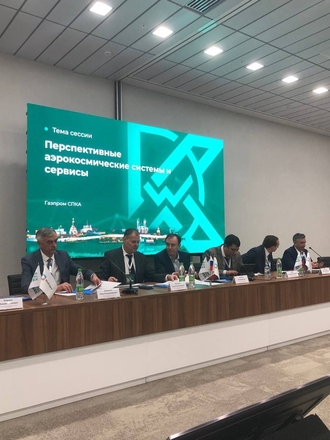How to observe the Earth: RSCC Director General and Satellite Communications ICC chairman Alexey Volin speaks about prospects of developing Russian Earth observation systems
Development of satellite services, including Earth observation, is a matter of national importance. This opinion was expressed by Alexey Volin, Director General of RSCC, Chairman of Satellite Communications ICC, during the "Prospective Aerospace Systems and Services" round table.
The event took place on 20 September in Kazan as part of the Kazan Digital Week 2023 international forum. The discussion was attended by representatives of public and private sector enterprises, research institutes and consumers of space services.
"Our Industrial Competence Centre has a strong focus on Earth observation. There are a lot of players willing to enter this market right now. Which is quite justified: the events of recent years have shown that it is impossible to do without domestic earth observation constellations – this applies to both civil and defence spheres. Development of such space systems is a matter of public and vital necessity," said Alexey Volin. Creation of Russian monitoring constellations will not only solve important national tasks, but will also help, though not in all spheres, to return the offers of such services from foreign companies, the chairman of Satellite Communications ICC is sure. The main thing is to ensure that cooperation with them proceeds on our terms.
According to Alexey Volin, there are no problems with the production of domestic devices, both for telecommunication and earth observation. Moreover, a favourable competitive environment is now emerging in this area. "We are looking forward for Gazprom AIT Facility LLC factory to start operations. We hope that as a result we will be able to improve the situation with satellite manufacturing prices, production time, and quality characteristics of satellites," Alexey Volin emphasized.
The main problem with earth observation at the moment is the rather large-scale investment costs with a not very large market size. "Therefore, the earth observation business is not possible without active participation of the government. The task of the industry is to find acceptable models of interaction with it," concluded RSCC Director General.
The event was moderated by Yury Urlichich, Adviser to Director General of Russian Satellite Communications Company, Chairman of the Council of the Association of Satellite Communications Market Players.
He also noted that the global earth observation market is really relatively small, and Russia's share in it is only a few percent. There are now 12 Earth observation satellites operating in the country. Tellingly, no domestic remote sensing satellites were launched last year. The government plays a critical role in the development of earth observation companies and should be the "anchor customer" of such projects. This is a global trend: for example, in the world, the share of state participation in the earth observation market now exceeds 70%. And if we talk about expanding the Russian constellation, the main number of satellites is planned to be launched under the federal project "Sphere" and during the implementation of the roadmap "Prospective Space Systems and Services" for the period until 2030, the agreement on which was signed by the Russian Government and Roscosmos with the business on 16 January 2023.
One of the principles of transformation of the Russian earth observation market, according to Urlichich, is rejection of failed Western concepts such as ESG and transition to a sovereign national ecology. "Russia must preserve natural resources and ecology according to its own rules. This is our responsibility, responsibility to the whole world, for that matter. It is impossible to preserve the Earth's ecology without Russia," he concluded.
Dmitry Sevastyanov, Director General of Gazprom Space Systems, also made a welcoming speech at the event. Sergey Masalov, First Deputy Director General of Gazprom AIT Facility LLC, elaborated on the objectives of the aforementioned roadmap. He spoke about how the company sees the development of its earth observation technologies in general, and what opportunities the new plant in Schelkovo will open for satellite construction.
